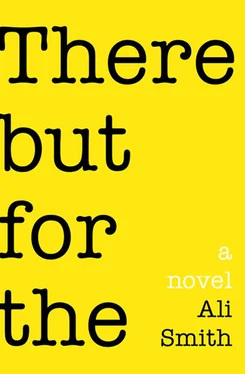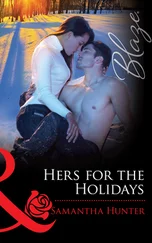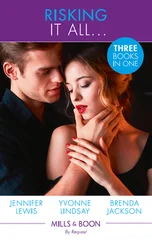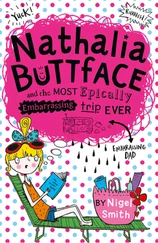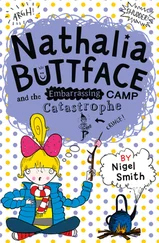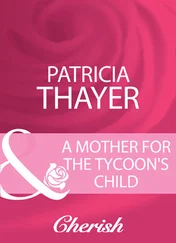Not a single thing.
Say that there is a heaven up above / say we survive the bumpy road to love Mark sat on the circular bench at the gate of the park. It was his day off. Twenty-seven years ago today, to the day, Mark is on a train coming south. He is thirty-two. His heart is high. In three minutes, according to his watch, the train will pull into Platform 8. Jonathan will be waiting for him at the head of Platform 8. Ten minutes ago, as the train reached the city’s outskirts, Mark shouldered on his stripy cotton jacket, said goodbye to the American nun (!) in mufti sitting opposite him, with whom he’d had a long conversation about many things, including sunlight and Nicaragua, and began walking the length of each carriage all the way to the front. On his way through he carries out a little survey, for fun, of what people are reading on the train. A girl reading Women in Love. A man reading Zen and the Art of Motorcycle Maintenance — still (!). A woman reading Death in Venice. A woman reading Heat and Dust. A man reading The White Hotel. A young man, very good-looking, reading a novelization of Chariots of Fire. A girl, looks like a student, reading Slaughterhouse 5. Now he’s past the buffet, now he’s through first class, where nobody is reading anything but the Daily Telegraph (!). Now he’s as near the front of this moving train as he can get, and now he is pushing the window in the door down in the smell of diesel, watching the sun glancing off the deep blue of the moving side of the train as it pulls out of the tunnel into the light before the station, and now his hand is on the handle and pushing the handle down, and now the heavy door is swinging open and the train still moving and he sees him there and he jumps, hits the ground running.
Twenty-seven years later, this journey was lost to Mark. It was just one of so many mundane journeys they made, over time, towards and away from each other. He couldn’t have remembered the details of this particular one, lovely though it was, even if he’d tried.
Time came and took your love away and now / say it’s only a paper moon — and how / the ground beneath us melts away like snow / tell every little star I told you so Mark sat on the bench by the gate of the park and looked at his watch. But then again, this is what happens when, one Saturday night, he goes for a drink in the pub opposite the Turkish restaurant after a play, with a nice chap he’s just met.
Mark: I’ve been invited to this dinner party next week.
Miles: But?
Mark: But, well, I don’t want to go.
Miles: But?
Mark: But what?
Miles: Just but.
Mark: What do you mean, but?
Miles: Exactly what I say. Those sentences all sound like they have a but attached.
Mark: But?
Miles: Yes.
Mark: And would that but have one t or two?
[Miles smiles at him, shakes his head.]
Mark: Shame. Ah well. Right. Got that straight, then. So to speak. Ha.
Miles: So. You’ve been invited to this dinner party next week, but you don’t want to go. You don’t want to go, but — but what comes next? See?
Mark: I get it. You mean like a game.
Miles: I mean more than a game, I mean, like actuality, like how things happen. Like … I was going home, but, this man asked me to go for a drink, so here I am.
Mark: Is it always but? Can it be and?
Miles: Yeah, but the thing I particularly like about the word but, now that I think about it, is that it always takes you off to the side, and where it takes you is always interesting.
Mark: Like … this thing happened at the end of the play which threatened to spoil the whole thing — but …
Miles: See?
Mark: Ah. I see. You’re kind of … amazing.
Miles: Ha-ha. But?
Mark: [laughs] What is it? All that grammar beaten into me at school, and I can’t remember the name of the figure of speech for the word but. Preposition?
Miles: I’m not prepositioning you.
Mark: Ha. Damn shame.
Miles: I’m doing something much better. So. You’ve been invited to this dinner party, but — you don’t want to go. You don’t want to go, but—
Mark: But I can’t really get out of it.
Miles: You can’t really get out of it, but—
Mark: But I’ve just thought of a way to make it do-able.
Miles: You’ve just thought of a way to make it do-able, but—
Mark: But it depends on whether this man I’ve just met will accept the invitation and come with me.
Miles: [surprised] Oh. Oh, you mean me?
Mark: [surprised at himself] Yes. But—. Yes.
[Laughter]
For every new bud there’ll ever be / all the old leaves get shunted off the tree / say it’s a kind of spooning — with a knife / this merciless merciful newness of life Mark sat, now, on the circular bench not far from the gate of the park. In a minute, he’d stand up and go and try the front door at the Lees’ house again. Forty-six years ago, in the Easter holidays (when he is roughly the age of the boy who sheep’s-eyed him earlier today up on the hill), he is “home” from St. Faith’s and Kenna is at the dentist, and because she has a dentist she particularly likes going to across this side of town, she has left him in a greasy spoon until her teeth are done. Across the road there is an antique sort of shop and in its window is a golden-coloured, medieval-looking picture. Mark pulls his coat on and leaves the caff, crosses the road.
The picture is a holy picture, a religious picture, of two men. They are turned towards each other and a group of men is watching them. One has his arm, his hand, on the other’s shoulders. He is looking at the man lovingly. The smaller of the two men is bending forward slightly. He is putting his fingers, his hand, right inside a wound in the first man’s side.
Beautiful, a man behind him says.
It is the man from inside the shop. He has come outside and is standing next to Mark.
Mark says yes, he thinks it is really beautiful.
The man’s name is Raymond. He’s quite old, about twenty. He hangs a handwritten notice on the inside of the door. Back in 20 mins. He locks the shop up. Lunchtime, he says to Mark. Fancy something? He winks.
He takes Mark for a walk in a park Mark later learns is Greenwich Park. There, in the woody part, on a foggy day in London town, things come to a pretty pass. Somewhere between roughness and gentility the man, who is very beautiful, kisses him so thoroughly that when Mark gets back to the place he’s supposed to meet Kenna an hour later he is flushed and new, a whole new person, and all the way across town it is as if his eyes have changed, as if all the colours in everything he sees are golden and ancient and new. They get home and he goes upstairs. He is lying on the floor playing his records (there is that good-looking boy, John Allford, clever, in the form above him at St. Faith’s who says that record is a word which means, in Latin, something which returns through the heart) on the little portable record player Kenna bought and lets him have on a Friday — or also when he is sad and needs to blot out the sad old songs with something more new, which Kenna understands, because Kenna can sometimes be very kind. He has his one ear pressed hard against the machine’s speaker behind the little chainmail holes, and he leans to get the next record out of its paper sleeve ready to play it, Then He Kissed Me, and that’s when he sees on it right there, the miracle, the word Greenwich, there on the label right under the word Kissed, and it is as if something somewhere has understood him.
LONDON AMERICAN RECORDINGS
Made in England
Then He Kissed Me
(Spector, Greenwich, Barry)
The Crystals
The song gives him an erection and then, when he takes himself in hand, a coming-of-age every bit as beautiful as the one he had in the park. He knows now what it means, to be bigger than yourself. Greenwich! England Expects That Every Man Will Do His Duty! The world is a bloodrush of rough harmony. Then it’s over; the song, abrupt, dies away, fades to the noise of the needle on vinyl and it’s gone. But he can lean over and do the thing with the mechanical arm so that the record will play over and over, on repeat, until you choose to stop, and you could even be dead and it would go on playing and playing.
Читать дальше
